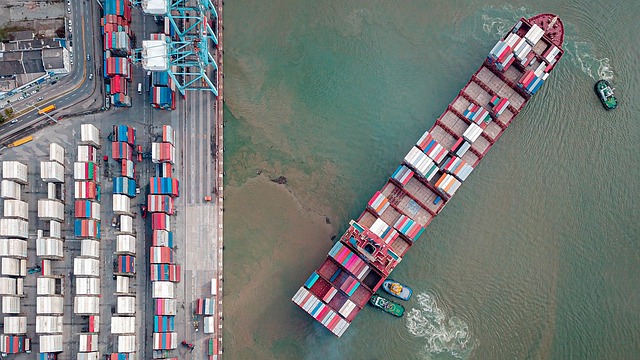
-
56 companies have been authorized to engage in cross-border trade of strategic goods while 67 others already doing so have been registered
-
The Department of Trade and Industry-Strategic Trade Management Office expects more companies to register and apply for authorization next year but hopes companies exporting strategic goods have already registered and obtained the necessary authorization
-
From January 1, 2023, export of strategic goods without STMO authorization will no longer be allowed
The Department of Trade and Industry-Strategic Trade Management Office (DTI-STMO) has authorized 56 companies and registered 67 others to engage in cross-border trade of strategic goods under the Strategic Trade Management Act (STMA).
Of the total authorizations, 42 are individual and 14 are global authorizations, STMO-Registration and Authorization Division chief Lorenz Anthony Fernando told PortCalls. The latest figures are an improvement from the 13 authorizations and 46 companies registered in February this year.
Fernando said his office expects more companies to register and apply for authorization next year but hopes firms that export strategic goods will have already registered and obtained the necessary authorization as early as January 1.
STMA announced in August that starting January 1, 2023, the export of strategic goods without STMO authorization will no longer be allowed.
RELATED READ: List of nationally controlled goods in PH requiring authorization released
STMO encouraged all entities engaged in the export of strategic goods to register and apply for authorization as soon as possible, taking into consideration the processing time prescribed by the STMA and its implementing rules and regulations.
Failure to comply with the authorization requirements will lead to the imposition of administrative or criminal penalties under the STMA.
RELATED READ: STMO issues rules on penalties for violating Strategic Trade law
Authorization prior to the export, import, re-export, and provision of related services is required under Republic Act No. 10697 (An Act Preventing the Proliferation of Weapons of Mass Destruction [WMD] by Managing the Trade in Strategic Goods, the Provision of Related Service, and for Other Purposes), or the STMA.
The STMA was signed into law in 2016 to comply with United Nations Security Council Resolution No. 1540.
The UN resolution “imposes binding obligations on all states to adopt legislation to prevent the proliferation of nuclear, chemical and biological weapons, and their means of delivery, and establish appropriate domestic controls over related materials to prevent their illicit trafficking.”
Strategic goods are products considered to be of such military importance, due to security reasons or to international agreements, that their exportation is either subject to specific conditions or prohibited altogether. The law also covers the control of transmission of intangibles such as software and technology.
STMO serves as the executive and technical agency of the government in establishing the management systems for trade in strategic goods pursuant to STMA.
The law is being implemented in phases, with exports as the first covered sector. Other types of shipments, including transit/transshipment, re-export/re-assignment, related services (e.g. transporting, brokering), and imports will be covered gradually.
In October 2019, the STMO began accepting applications for the registration of firms that intend to engage in cross-border strategic goods trade. Likewise, it began accepting applications for authorization to export dual-use goods in July 2020.
STMO Memorandum Circular No. 20-26 provides the guidelines on export authorization.
Under MC 20-26, export authorization is issued by the STMO to a person before he can engage in the exportation of strategic goods.
The three types of export authorization are:
- Individual authorization – a license granted to one specific person or entity to engage in the export of strategic goods to one end-user, consignee and covering one or more strategic goods.
- Global authorization – a type of license granted to one specific person or entity to engage in the export of strategic goods to two or more specific end-users and/ or in one or more countries. This type of authorization requires an Internal Compliance Program (ICP) before application.
- General authorization – a license to export specific strategic goods to destination countries under the conditions specified in the general authorization. This type of authorization may be used by STMO-registered persons if they comply with two requirements: notify the STMO before the use of such authorization, and comply with the conditions set forth therein.
Registration with the STMO is required before applying for an authorization to export strategic goods.
The authorization holder should ensure that the customs broker or authorized, agent before departure, will submit to the BOC a copy of the authorization and extract of the manifest of the carrier.
An authorization may be extended provided that the applicant inform the STMO and submit an accomplished form not later than 15 calendar days before the expiration of the authorization.
The export authorization may be suspended, annulled, revoked, limited, or modified depending on conditions set forth under MC 20-26.
STMO earlier said it is focused on exports more than imports, as the latter is already regulated by other government agencies such as the Philippine Drug Enforcement Agency and Philippine National Police-Firearms and Explosives Division. – Roumina Pablo




